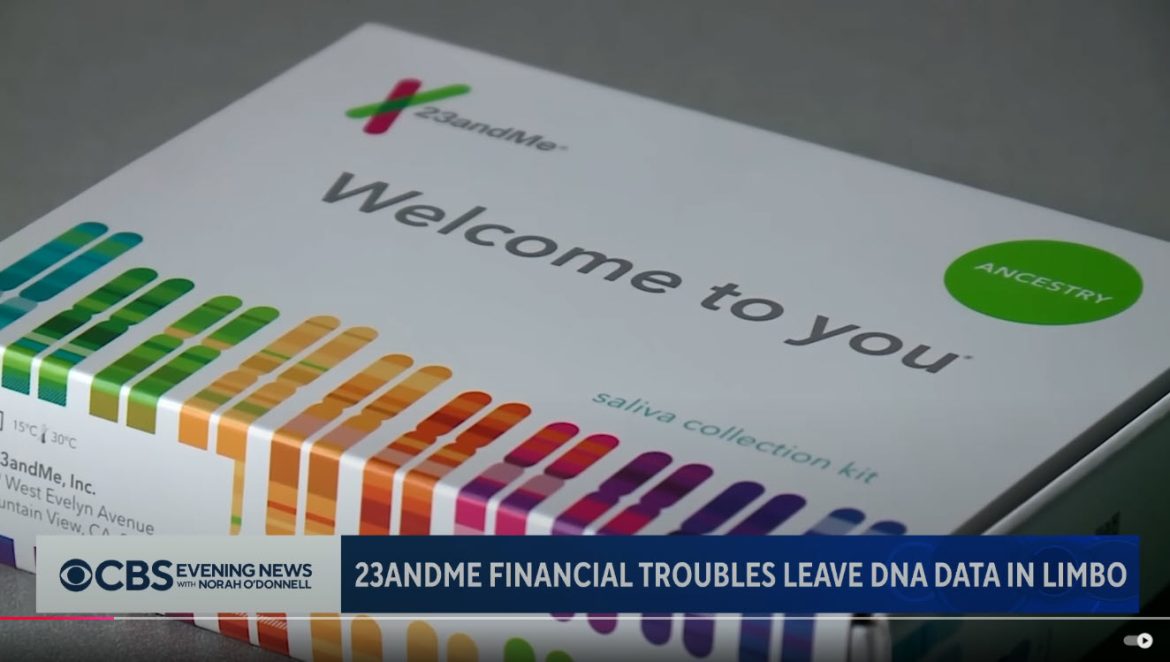23andMe, a leading DNA testing company known for analyzing millions of users’ genetic data, is now under scrutiny as it faces financial difficulties. As the company navigates these challenging times, millions of customers who have submitted their DNA samples for ancestry insights and health-risk assessments are left wondering: What happens to their genetic data if 23andMe ceases operations?
Since its founding in 2006, 23andMe has built a massive database of genetic information, housing details on the genealogy and health risks of users who willingly submitted DNA samples for analysis. Yet as the company has struggled financially, many privacy advocates and customers alike are concerned about the fate of such sensitive information if 23andMe were to shut down or undergo restructuring. Unlike hospitals and other healthcare entities, 23andMe is not bound by HIPAA (Health Insurance Portability and Accountability Act) protections, which places fewer regulatory safeguards on this data.
Data Privacy and Ownership: A Legal Gray Area
One of the key issues surrounding 23andMe’s business model is the ownership and transferability of genetic data. When customers send in their DNA, they agree to terms of service that grant 23andMe certain rights to process, store, and even share anonymized data with third parties, including pharmaceutical companies and research institutions. If the company dissolves or is acquired, these terms may still allow for the legal transfer of data, leaving customer information vulnerable to potential misuse or resale.
Privacy expert David Gerstein explains, “Most people don’t realize that genetic data, once submitted to a commercial company, becomes part of the company’s assets. If 23andMe goes under, that data could legally be sold to a third party as part of the liquidation process, just like other business assets.”
Potential Acquisition by a Larger Corporation
Another possibility is that if 23andMe faces serious financial instability, it may be acquired by a larger entity, such as a pharmaceutical or data-mining company. A sale of assets, including the genetic database, is a likely scenario under such circumstances. In this event, customers’ data could end up with a company whose goals or privacy standards may differ significantly from 23andMe’s.
The implications of an acquisition are vast. Potential buyers, especially those in pharmaceuticals, may be interested in using the data to develop targeted drugs, creating ethical concerns over how DNA is used without individual consent. Some users are concerned that genetic information, once anonymized, could eventually be re-identified, especially if linked to other data sources in an era of advanced data analytics.
Privacy Measures in Place – But Are They Enough?
23andMe assures users that they take privacy seriously. The company has stated that it utilizes robust encryption to protect customer data and only shares anonymized information with third parties for research purposes. However, without HIPAA protections, these measures remain voluntary and could change under new ownership or financial distress.
Currently, the company’s terms specify that data cannot be shared in a personally identifiable way without explicit consent. Yet, in practice, anonymization of genetic data is not foolproof. Genetic information, even when anonymized, has been shown in various studies to be re-identifiable, especially when cross-referenced with other public or commercial datasets.
Growing Calls for Federal Regulation of Genetic Data
With the rise of companies like 23andMe and competitors in the direct-to-consumer genetic testing industry, many advocates are pushing for increased federal oversight of genetic data. Unlike medical records, genetic data provided to private companies is largely unregulated, with little legal precedent governing its sale or use post-acquisition. Senator Elizabeth Warren and other lawmakers have previously called for more stringent controls on the use and sharing of genetic data, citing the potential for misuse by third parties.
Kara Fredrickson, director of the Privacy Rights Advocacy Group, argues that such data should be regulated similarly to medical records. “DNA is inherently private, and its misuse has potential ramifications not only for individuals but for their families and future generations. The lack of protections in this field is a legal loophole that urgently needs closing,” Fredrickson says.
User Awareness and Data Deletion Requests
For concerned customers, 23andMe does provide an option to request deletion of their data. However, the deletion process is not instant, and once data is shared with third parties, it cannot be reclaimed. Additionally, customers have reported mixed experiences regarding how swiftly their data was removed from 23andMe’s systems.
Some customers are now opting to take preventive measures by requesting deletion ahead of any potential financial crisis or company closure. Experts advise that users who are concerned about their data being sold or transferred take proactive steps to delete their accounts and request full data deletion from the company.
A Growing Trend: Consumer Skepticism in Genetic Testing
23andMe’s current financial struggles and the uncertain future of its data policies reflect a larger trend of consumer wariness surrounding genetic testing. While the technology has brought insights and benefits, such as uncovering ancestry or identifying health predispositions, the lack of stringent data protections is causing some to second-guess the trade-off of sharing such personal information.
As financial and regulatory uncertainties persist, privacy experts suggest that customers carefully read terms of service agreements before submitting DNA for analysis. For those with genetic data already in 23andMe’s system, the best approach may be staying informed on the company’s financial health and understanding the rights they hold to their own data.



